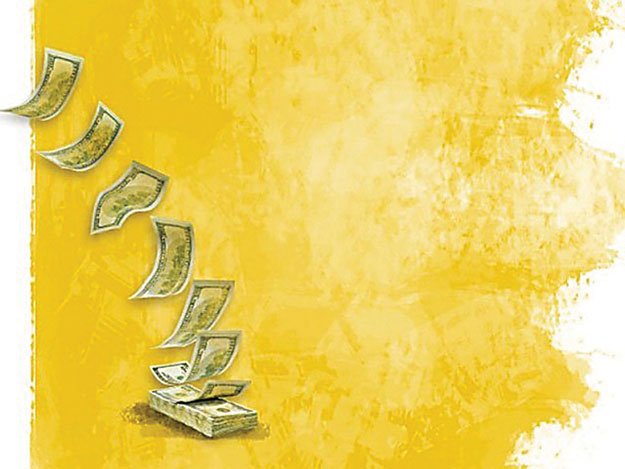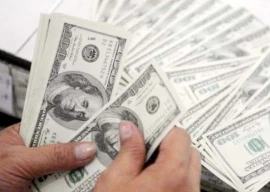
The foreign exchange reserves held by the central bank surged 10.23% on a weekly basis, according to data released by the State Bank of Pakistan (SBP) on Thursday.
On February 4, the foreign currency reserves held by the SBP were recorded at $17,336.8 million, up $1,609 million compared with $15,727.6 million on January 28.
According to the central bank, the increase came due to the receipt of $1,053 million from the International Monetary Fund (IMF) under the Extended Fund Facility (EFF) programme and proceeds against Pakistan International Sukuk Bond issuance of $1,000 million.
“After accounting for external debt and other payments, SBP reserves increased by $1,609 million to $17,336.8 million,” it said.
Overall liquid foreign currency reserves held by the country, including net reserves held by banks other than the SBP, stood at $23,720.9 million. Net reserves held by banks amounted to $6,384.1 million.
Earlier in the week ended August 27, 2021 the foreign exchange reserves held by the central bank soared to an all-time high of $20.15 billion after Pakistan received general allocation of Special Drawing Rights (SDRs) worth $2,751.8 million from the IMF on August 24.
On March 30, 2021, Pakistan borrowed $2.5 billion through Eurobonds by offering lucrative interest rates to lenders aimed at building the foreign exchange reserves.
It received the first loan tranche of $991.4 million from the IMF on July 9, 2019, which helped bolster the reserves. In late December 2019, the IMF released the second loan tranche of around $454 million.
The reserves also jumped on account of $2.5 billion in inflows from China. In 2020, the SBP successfully made foreign debt repayment of over $1 billion on the maturity of Sukuk.
In December 2019, the foreign exchange reserves surpassed the $10 billion mark owing to inflows from multilateral lenders including $1.3 billion from the Asian Development Bank (ADB)


1727778647-0/diddy-(16)1727778647-0-165x106.webp)

1732014631-0/BeFunky-collage-(71)1732014631-0-165x106.webp)












COMMENTS (2)
Comments are moderated and generally will be posted if they are on-topic and not abusive.
For more information, please see our Comments FAQ